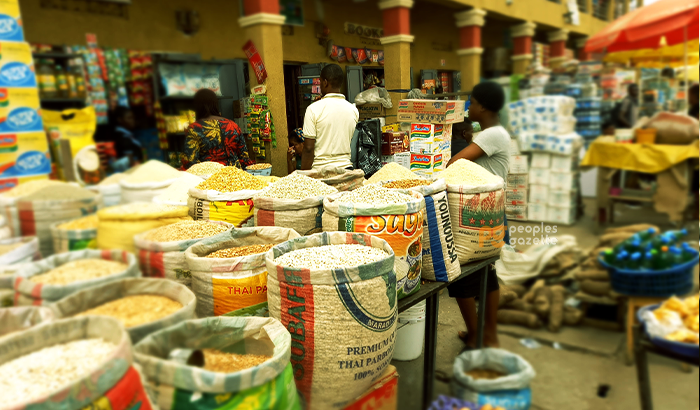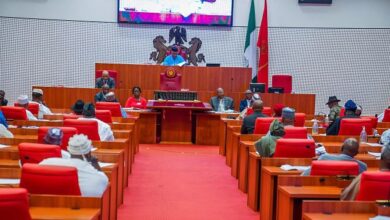71 Percent of Nigerian Households Cannot Afford Healthy Food, NBS Reports
New data reveals deepening nutritional crisis as poverty rises nationwide

A survey by the National Bureau of Statistics (NBS), supported by the World Bank, has revealed an alarming deterioration in Nigerian households’ access to nutritious food, with approximately two-thirds of families unable to maintain healthy diets due to financial constraints.
The report, titled “Nigeria General Household Survey – Panel Wave 5 (2023/2024),” shows an increase in food insecurity, with 62.4 percent of households now worried about having enough food to eat – a significant jump from 36.9 percent in the previous survey (Wave 4, 2018/19). The study found that 63.8 percent of households are restricted to eating only a few types of food due to financial limitations, while 60.5 percent report eating less than they believe they should.
Beyond food security, the survey exposed significant infrastructure challenges, particularly in energy access. While 82.2 percent of urban households have electricity, only 40.4 percent of rural households are connected to power supply, with all households experiencing an average of 6.7 power blackouts weekly. Traditional cooking methods remain prevalent, with 65 percent using three-stone stoves and 70.2 percent relying on wood fuel, though liquefied petroleum gas (LPG) usage is increasing.
The survey also revealed concerning trends in asset ownership and basic amenities. Overall asset ownership has declined since 2018/19, although mobile phone penetration remains high at two-thirds of households, with 21.3 percent having internet access. Housing ownership shows a stark urban-rural divide, with 80.1 percent ownership in rural areas compared to 49.1 percent in urban locations.
Beyond the Numbers: A Deepening National Food Crisis
The latest NBS survey paints a troubling picture of deepening poverty and its cascading effects on Nigerian households. The sharp increase in food insecurity – with the percentage of worried households nearly doubling from 36.9 to 62.4 percent in five years – suggests that recent economic policies and inflation have severely impacted families’ ability to maintain basic nutrition standards.
The data reveals a multifaceted crisis where food insecurity intersects with infrastructure deficits. The significant urban-rural divide in electricity access (82.2% vs 40.4%) indicates that rural communities face compounded challenges: not only are they struggling with food costs, but they also lack basic infrastructure that could support economic activities and improve living standards.
The continued reliance on traditional cooking methods (65% using three-stone stoves) and wood fuel (70.2%) raises environmental concerns and suggests that despite urbanization and modernization efforts, many Nigerian households remain trapped in energy poverty. This situation has far-reaching implications for health, environmental sustainability, and economic productivity.
The decline in overall asset ownership since 2018/19 is particularly concerning as it indicates that households are likely liquidating assets to cope with economic pressures – a strategy that could lead to long-term poverty entrenchment. While high mobile phone ownership and growing internet access show potential for digital inclusion, these bright spots are overshadowed by the fundamental challenges in meeting basic needs.
These findings highlight the urgent need for targeted interventions that address both immediate food security concerns and underlying structural issues.






